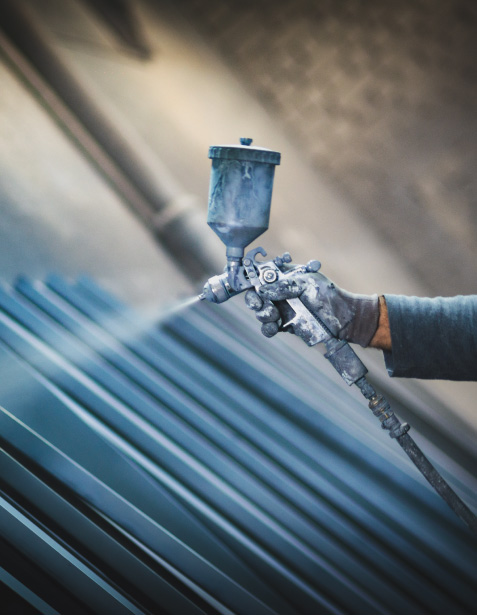
Industrial coatings are used to preserve the item or material lying beneath them. Most commonly used for corrosion control on metal as well as concrete, industrial coatings are also called Original Equipment Manufacture (OEM) coatings. They make up a huge market, selling hundreds of millions of gallons to other industries each year, and raking in billions of dollars. These specially engineered, industrial-grade protectants have numerous common and not-so-common applications in the marketplace.
But first, a brief history of industrial coatings: These ubiquitous materials were not a standard part of American life until the Industrial Revolution. Along with the assembly line and the Model T, industrial coatings made their debut during this period. People all over the world began to recognize the value in industrial coatings, as they greatly improved a product’s durability and longevity. By the mid-20th century, they could be found in virtually every industry. Around the mid-20th century is also when people became more aware of the health and environmental risks surrounding some ingredients in paints and industrial coatings. Manufacturers began to eliminate lead and other toxins from the industry, leading to the much safer coatings that we have today.
You’ll most often see industrial coatings used in the protection of steel and concrete from corrosion. They’re also used often to make materials less susceptible to fire and other hazards. Generally speaking, industries use industrial coatings to extend the lifetime of a product or material. Other common uses include: the use of anti-stick coatings on metal kitchen products; anti-abrasion coatings on metal machinery and parts; lubricant coatings for use in extreme environments where liquids and oils can’t be used; acid-resistant coatings on fasteners and industrial equipment that frequently comes in contact with industrial chemicals; and lastly, baked-on coatings that protect many different metal surfaces, including industrial components, from chemicals, wear, and corrosion.
Beyond the obvious applications of industrial coatings, you’ll find many more in places you may not have expected. For example, did you know there could be an industrial coating on your favorite hair straightener or curling iron? What about on your coffee maker, ice cube tray, or cheese mold? Or in the making of your car? Even the energy sector benefits from industrial coatings on solar panel equipment.
To a lesser extent, industrial coatings may be used for simple aesthetics. In fact, there are special varieties engineered with a high-gloss finish to enhance the appearance of various metal products.
Depending on the application for which you need it, you may choose from one of several types of industrial coating. General types include metallic, organic, and inorganic. Organic coatings often include just paint and varnish. Inorganic coating is more sophisticated, with one example being porcelain. There are numerous sub-types of metallic coatings, including anodizing, hot dip galvanizing, diffusion coating, and electroplating. It’s always best to speak with a professional in the industry about which industrial coating is right for your company or application.